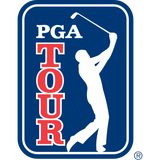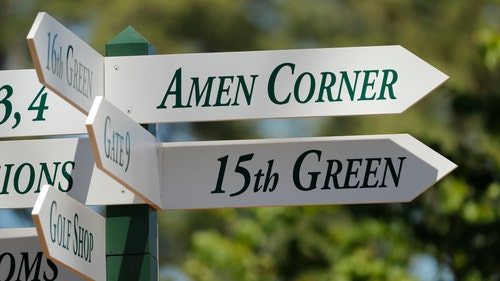
Tour secrets: Eight things you didn't know about being a pro golfer
Have you ever sat at your job and wondered what life would be like if you played a professional sport? More specifically, what if you played golf on the PGA Tour? Well, I did it for a long time, and I’ll do my best to answer some of the most frequently asked questions I’ve been hit with about life on the PGA Tour. Here goes …
No, we’re not all friends
First off, professional golfers aren’t usually the life of the party. Our youth was spent at the practice range, and that doesn’t lend itself to raising the most social young men. As a matter of fact, if you walk into the players’ dining room at a Tour event I can guarantee you’ll see a lot of tables occupied by just one player -- head down and eating alone. Golf is an individual sport, so loneliness and golf go hand in hand. Now, at a normal PGA Tour event there are 144 players in the field. Just like in any other walk of life, there are many different personalities, and they just don’t all get along. I’ve never seen an actual fistfight, but I’ve seen more than one disagreement come awfully close. There are players I know who flat-out hate some of the other golfers. Not naming any names, but there are a handful of guys who are almost universally despised by the rest of the players. I always thought I got along with most people, but my caddies knew there were a couple golfers I refused to practice near. It’s just simple math. You can’t get along with everyone, but one thing we almost all have in common is …
We’re jealous of guaranteed contracts in other sports
In golf, we play for our pay. In all the other major sports, a player signs a contract and is pretty much guaranteed he will get paid that amount of money, regardless of whether he lives up to expectations or gets hurt. Not in golf. If you’re hurt and can’t play, you don’t get anything. If your performance suffers, so does your pocketbook. I know what you’re thinking -- yes, there are sponsor contracts. When you put a corporation’s name on your hat or bag, you do get paid, usually handsomely. But in most cases there are strong performance-based incentives written into the contract, and it will be prorated if you get hurt and don’t play a full season. Trust me when I tell you that sponsor contracts come in handy because …
Playing the PGA Tour is very expensive
Without getting into all the boring details of the many ways money gets funneled into our PGA Tour retirement account, I’ll give you the basic principle: Our retirement is performance-based. The better you play, the more your retirement fund is worth. Money is put in every time you make a cut, and bonus money is added based on FedEx Cup standings. The problem is, it takes a lot of good golf to get that money. To be fully vested, you need to play five full years (minimum of 15 tournaments per year) on the PGA Tour. If you play four years most of that money goes bye-bye. That’s not too bad considering that when I joined the Tour a player had to make 150 cuts to get retirement money. That’s a whole lot tougher than five years of participation. Since I get asked about our retirement a lot, in the interest of journalistic transparency, I’ll give you the details. I played 10 years on Tour, making 184 cuts. I started amassing retirement money in 1997, and today it’s worth about $2 million. Basically, I’ll collect starting on my 50th birthday and get paid out over 20 years. That’s awfully generous for a guy who never felt he was that good at golf. Yes, I know I was good, but compared to the competition I thought I stunk. About that competition …
Competition on the PGA Tour is supposed to be fierce, but really it doesn’t exist
Golf is one of the only sports where the rest of the players don’t matter. If Player A is longer than me, and Player B has a better short game than me, it just doesn’t make a difference. The only real competition is between the golfer, the course and the demons in his head. I tell any young player who wants to play professionally but worries that his skills don’t match the best in the world the same thing: It doesn’t matter how good you are. If you go shoot 69 or 70 every round, you’re going to get awfully rich playing the Tour. The only real competition is in match play, and that barely exists on the Tour. That is unless you play for money in the practice rounds, but unfortunately …
Gambling is illegal at Bushwood, sir … and I never slice
Any golfer worth his salt has to throw in a “Caddyshack” reference once in a while. But, does that mean no one plays for money in practice rounds? Of course not. As a matter of fact, I’ve been known to gamble with another unnamed golfer during actual tournament rounds. But what is greatly frowned upon is paying off on the last green in front of spectators. PGA Tour golfers have an image to uphold, and whipping out 100-dollar bills in front of the gallery doesn’t make the powers that be very happy. In fact, if you’re ever allowed in a PGA Tour locker room, look around for a deck of cards. You won’t find one. Although locker rooms and card games usually go together like peanut butter and jelly, the Tour forbids all of that. It doesn’t want sponsors thinking we do anything that’s not totally wholesome and family friendly. One thing the Tour doesn't have to worry about, though, is PEDs because ...
Performance-enhancing drugs just don’t exist in golf
Maybe I’m being naive, but there just isn’t any pharmaceutical that will make you a better golfer. If you take anabolic steroids or HGH, I would love to play against you. Golf is a game of controlling emotions and thinking properly more than it is about strength. Also, being stronger doesn’t necessarily help you hit the ball farther. How many times do you think John Daly has been to the gym? Are some recreational drugs taken by tour players? You know it. Do those substances help them play better golf? No way. Spending the money to test players for drugs, performance-enhancing or recreational, isn’t nearly as important to golf as realizing …

Think John Daly needs performance-enhancing drugs to hit a golf ball far? Come on.
Slow play is a problem
Sometimes the Golf Channel is on when I hang out in the locker room, and I’ve heard plenty about what causes slow play: There are too many players in the field; the courses are too hard; we need to let the players use rangefinders. Wrong, wrong and wrong. The only source of slow play is … slow players. Imagine two cars on the highway driving slowly side by side, not allowing anyone to pass. It doesn’t matter if there is one car or a thousand cars behind them, they are causing the hold-up. We all secretly hope the highway patrol shows up and gives them both tickets for ruining our day. It’s the same thing on the Tour, but our police refuse to write tickets. The only thing that will make a slow player faster is for a rules official to give that player a penalty stroke or disqualify him. Unfortunately, there hasn’t been a penalty stroke for slow play on the Tour since the early ’90s. That is insane because I’ve personally witnessed a lot of slow play since then. Actually, I think the slow-play rule is the most important one in golf, and for one reason: If I purposely break any other rule, I’m affecting only my own game. If I break the slow-play rule, I affect every player in the field who has the unfortunate luck to be in the group with me or behind me. The Tour should single out repeat offenders by handing out penalty shots on a regular basis. If it were up to me, the slow players would be made to wear a big sign on their back saying “Kick me because I’m a slow golfer.” Trust me, that is the only cure.
I’m certain I didn’t cover every question to everyone’s satisfaction, and I’m sure I didn’t think of every question you could have possibly had about life on Tour, but you know what? That’s why Twitter was invented.
Former PGA Tour pro Robert Damron is a regular contributor to FOXSports.com's golf coverage. Follow him on Twitter @RobertDDamron.


